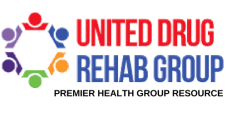Is Addiction Hereditary?
People often wonder if drug and alcohol addictions are hereditary. Some families seem to end up in addiction recovery programs and suffer from similar strains of addiction—can the disease be passed down from generation to generation? Well, yes—and no. According to the American Psychological Association, 50% of a person’s vulnerability to alcohol or drug addiction is due to genetics. But while genetics play a huge role in whether someone is more susceptible to drug addiction, so do environmental influences.
Several different biological differences in the brain point toward a genetic propensity for addiction. For example, the National Institute on Drug Abuse reported that people with low levels of a certain dopamine receptor, called D2, are more strongly affected by drugs such as cocaine, heroin, and alcohol, and are therefore more likely to become addicted. The study posited that people with low D2 receptors actually get a stronger high than others with regular or high levels of D2. A second study found that a brain protein called DARPP-32 facilitates the function of drugs. When researchers removed DARPP-32 from the brains of mice, the mice showed no response to drugs. Again, levels of DARPP-32 are genetically determined; people with low levels of the protein are less affected by drugs while people with high levels are more affected. These examples address only the merest tip of the iceberg in terms of genetic markers in the brain, and suggest that while genetics profoundly affect vulnerability to addiction, we know very little about how those genes actually work.
However, just because your family member is addicted to drugs does not necessarily condemn you to the same fate. If you never try drugs, you are no more likely to end up in drug rehab or become addicted than anyone else. Addiction only comes after abuse, and positive environmental influences like protective factors can significantly lessen the risk of abuse and eventual addiction. Protective factors include parental involvement, self-control, strong social bonds, and good academic performance; while risk factors include lack of parental involvement, early aggressive behavior, poverty, and poor academic performance. Childhood trauma and stress can also lead to drug abuse and addiction.
As always, the interaction between nature and nurture is complex and opaque. There is no way to absolutely predict drug addiction, and whether or not you are genetically predisposed to addiction, there are a host of other environmental factors that also influence the risk of addiction. People without genetic risk of addiction but who experience risk factors such as stress or poverty are also susceptible to addiction and treatment in addiction treatment centers. The best strategy for avoiding addiction is early intervention, a focus on protective factors, and informed drug education for young people.
If you or someone you love is struggling with alcohol or drug addiction, please make the brave decision to contact our empathetic representatives today. Our top priority is your health and recovery, and we will help you find a luxury drug rehab program that fits your individual needs, goals, and desires. Begin your journey toward lasting recovery and sobriety today.


